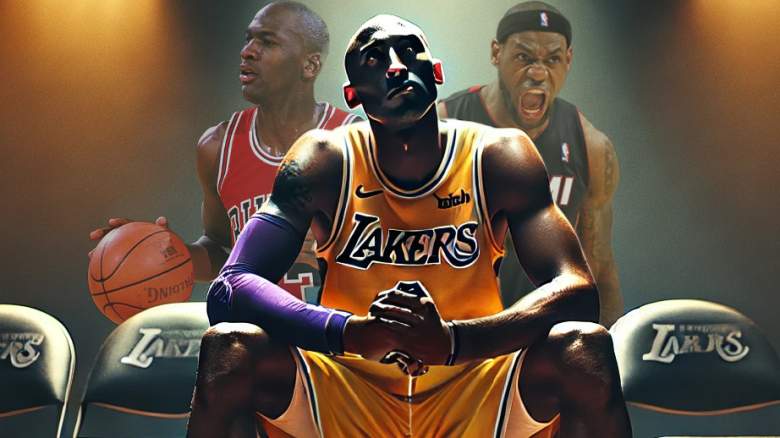
Since its inception in the 1955-56 season, the NBA Most Valuable Player award remains among the highest honors that a player can achieve. It serves as a true symbol of an individual’s regular-season impact, not only on his team but the league as a whole.
With the abundance of talent that constantly populates the league, it’s easy to see why the MVP race is always a hot topic among pundits and fans alike.
These races often come down to the wire and result in controversial decisions. While every MVP has no doubt had an exceptional season, there are instances when another candidate has felt more deserving than the actual winner.
Let’s take a look at the 10 biggest MVP snubs in NBA history:
10. Chris Paul (2007-08)
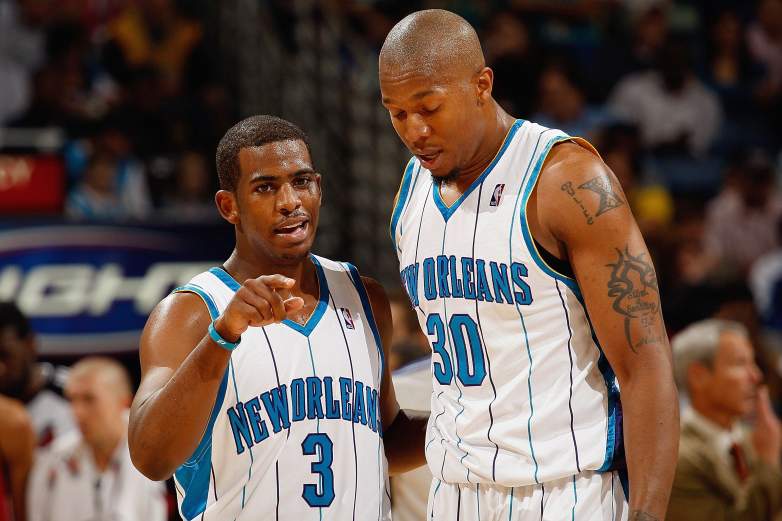
GettyChris Paul and David West of the New Orleans Hornets.
Actual Winner: Kobe Bryant
Los Angeles Lakers great Kobe Bryant won his first and only MVP award at the conclusion of the 2007-2008 NBA season. While Kobe’s season was great in its own right, this selection almost felt like a lifetime achievement-type of MVP for the all-time great, with other candidates perhaps being more deserving for the single season.
The candidate with perhaps the strongest case for winning over Bryant was then-New Orleans Hornets point guard Chris Paul. Paul, just a few years into his career, posted what may have been his best season as a pro. Paul led the league in both assists and steals and guided New Orleans to the second seed in a very stacked Western Conference.
While Kobe was without a doubt incredible, many have argued that Paul was more deserving, with his Hornets finishing only a game behind with what was considered a weaker roster, especially following the Lakers’ trade for Memphis Grizzlies big Pau Gasol. Unfortunately for Paul, this snub was likely his best chance at the award in his entire career.
9. Charles Barkley (1989-90)
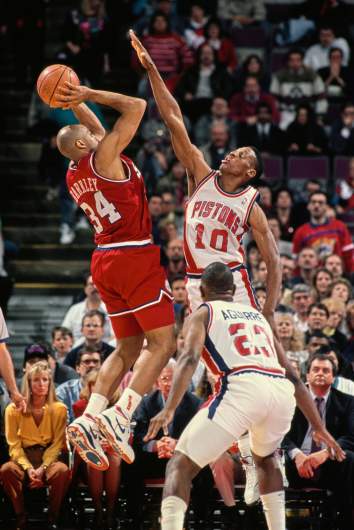
GettyCharles Barkley jumps to make a shot to the basket over the attempted block by Dennis Rodman.
Actual Winner: Magic Johnson
Magic Johnson had a great 1989-1990 campaign and led the Los Angeles Lakers to a 63-19 record en route to his third MVP. During this season, Johnson had averages of 22.3 points, 6.6 rebounds, and 11.5 assists per game. Despite his excellent campaign, a more fitting choice may have been Philadelphia 76ers star Charles Barkley.
Barkley had one of the best seasons of his career, with averages of 25.2 points and 11.5 rebounds while shooting 60% from the field. Johnson was the best player on his team, sure, but Barkley made a strong case as the most valuable player to his team. Voters felt the same as well, with Barkley actually finishing with more first-place votes than Magic. Despite this, Magic was still able to amass enough second- and third-place votes to walk away with the trophy.
8. James Harden (2016-17)
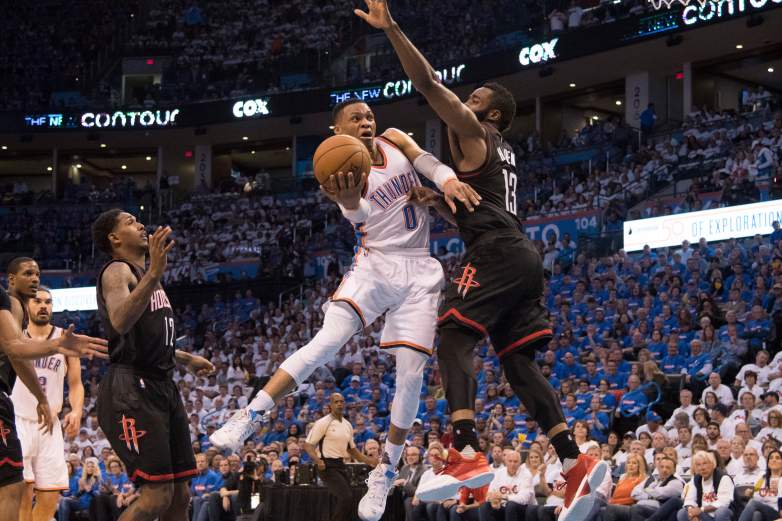
GettyRussell Westbrook and James Harden gave fans an amazing 2017 NBA MVP race.
Actual Winner: Russell Westbrook
The 2016-17 MVP race was absolutely electrifying, with the two main candidates being former Oklahoma City Thunder running mates Russell Westbrook and James Harden. In the end, Westbrook took home the honors on the back of a jaw-dropping season where he both led the league in PPG and averaged a triple double, the first player to do so since Oscar Robertson in 1962.
In addition to these incredible numbers, Westbrook had the advantage of the narrative on his side; Westbrook was the sole member of the Thunder’s “Big 3” to remain on the team following Kevin Durant‘s shocking move to the Golden State Warriors.
Despite Westbrook’s undoubtedly strong effort, the Thunder only finished 47-35, good for sixth in the West. With the emphasis that the MVP award typically puts on team success, perhaps Harden, the man who led the league in win shares that year, should’ve been the man to walk away with honors. After all, Harden’s Houston Rockets did finish with a 55-27 record, enough for third in the West. Along with this, Harden’s stats were phenomenal, almost averaging a triple double himself on excellent efficiency.
Harden would go on to win the MVP award the following year, but to many he should’ve been a back-to-back winner.
7. Shaquille O’Neal (2000-01)
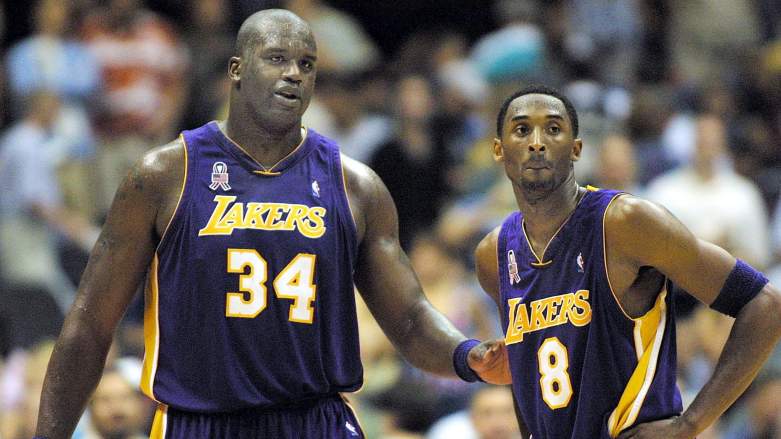
GettyShaquille O’Neal and Kobe Bryant of the Los Angeles Lakers watch the final seconds of their victory over the San Antonio Spurs.
Actual Winner: Allen Iverson
Allen Iverson‘s 2000-01 campaign is a true testament to his grit and determination. The undersized shooting guard led the league in both points and steals, along with being the ace of a 56-26 Philadelphia 76ers squad. While Iverson’s efforts should certainly not go unnoticed, there’s a real argument that Shaquille O’Neal of the Los Angeles Lakers should’ve taken home honors.
While Iverson’s stats were excellent, he played far more minutes than Shaq and had a much higher usage rate. Shaq’s efficiency was miles better than Iverson’s, leading the league by shooting 57% from the field. Shaq’s Lakers fell from 67 wins the previous year, but they still finished with the same record as the Sixers.
While they had the same result in the regular season, the postseason saw the Lakers nearly sweep through the entire playoffs, with their one loss coming to the Sixers. Despite the Sixers stealing a game, it was evident that the Lakers were the better team when they won the 2001 Finals four games to one. Shaq averaged 33 PPG and 15.8 RPG in this series, showing that he may have been the MVP of the regular season all along.
6. Nikola Jokic (2022-23)
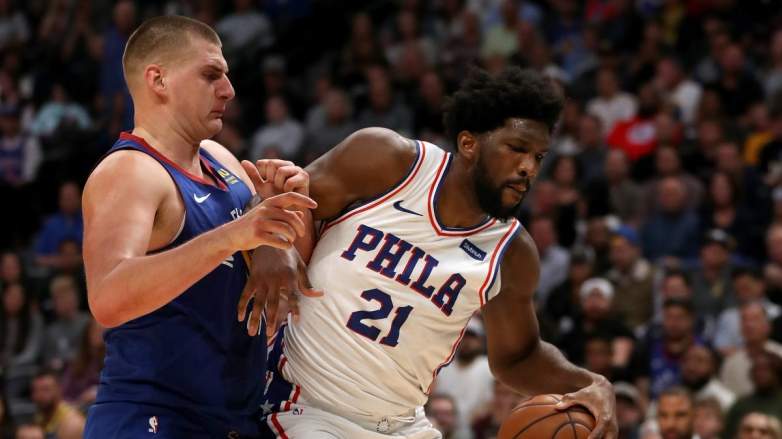
GettyNikola Jokic of the Denver Nuggets and Joel Embiid of the Philadelphia 76ers.
Actual Winner: Joel Embiid
The 2022-23 season saw the MVP race come down to two of the current generation’s best big men: Joel Embiid and Nikola Jokic. Jokic was the reigning MVP for the previous two years and looked to add another to his collection.
Well, it might’ve been Jokic’s last two seasons that lost him the nod here. While Embiid had an excellent season in his own right, averaging over 33 points and leading the Philadelphia 76ers to a 54-28 record, Jokic was the best player in the league at this point, serving as the mastermind behind the entire Denver Nuggets offense.
Due to a combination of factors from voter fatigue to Embiid having a late-season surge, voters decided to not give Jokic his third MVP. While he didn’t take home the MVP, “the Joker” might’ve had the last laugh, as his Nuggets would go on to win the NBA title later that year.
5. LeBron James (2010-11)
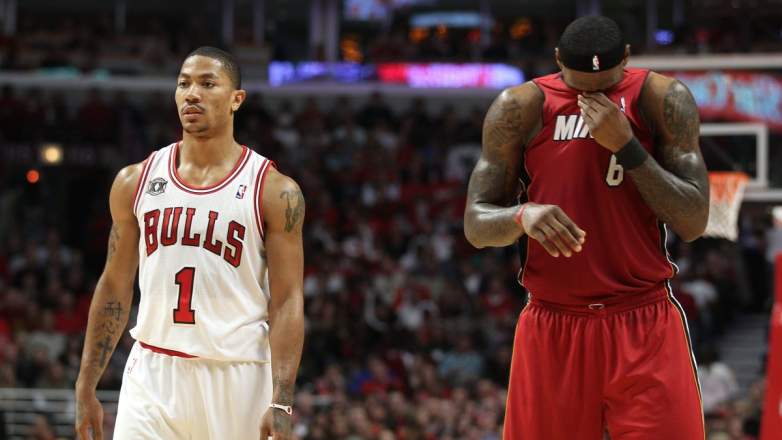
Getty Derrick Rose of the Chicago Bulls and LeBron James of the Miami Heat during the 2011 Eastern Conference Finals.
Actual Winner: Derrick Rose
2011 was the year of the coronation of the youngest MVP in league history, Chicago Bulls dynamo Derrick Rose. Rose and the Bulls finished with the best record in the NBA, and D-Rose looked like one of the most electrifying players in the whole league.
In spite of this, there’s a real argument for Rose not being the most deserving player to win the award. That year, the Bulls had the league-best defense, and not because of the offensive-minded Rose. Furthermore, there was another man in the East who had an excellent season of his own, this being LeBron James.
James was widely considered the best player in the entire league by this point and had the advantage over Rose in nearly every statistic apart from team wins. Unfortunately for James, this was the first season following his heavily lambasted move to the Miami Heat.
James taking his talents to South Beach turned him into a pariah of sorts, and given how media-driven the MVP award is, LeBron didn’t stand a chance in this race. In fact, he didn’t even finish second: Dwight Howard held this distinction. While both Rose and Howard had great years in their own right, the 2010-11 race will go certainly down as one of the biggest cases of a narrative-driven snub.
4. Kareem Abdul-Jabbar (1972-73)
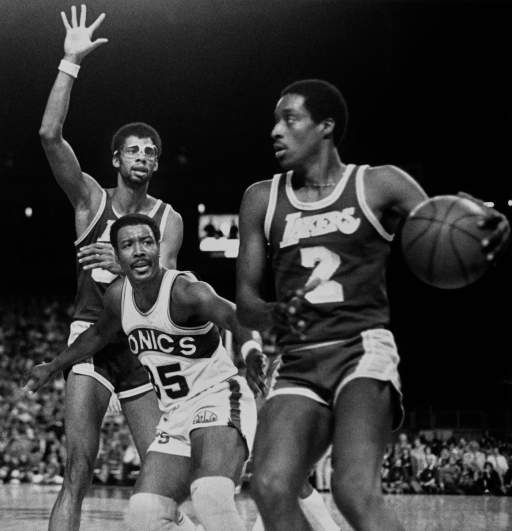
GettyKareem Abdul-Jabbar in 1978.
Actual Winner: Bill Russell
The 1972-73 race saw it come down to two big men: Dave Cowens and Kareem Abdul-Jabbar. Ultimately, the honors went to Cowens, whose Boston Celtics had the best record in the league at 68-14.
Team record was the only true advantage Cowens had over Abdul-Jabbar in this race, with Kareem averaging over 30 points and 16 boards and leading his Milwaukee Bucks to a very respectable 60-22 record. Kareem outpaced Cowens in points, assists, and shooting percentage while coming behind Cowens by only 0.1 rebounds per game.
While Kareem would go on to win the most MVPs in league history with six when it was all said and done, there’s a strong argument he should have seven.
3. Wilt Chamberlain (1961-62)
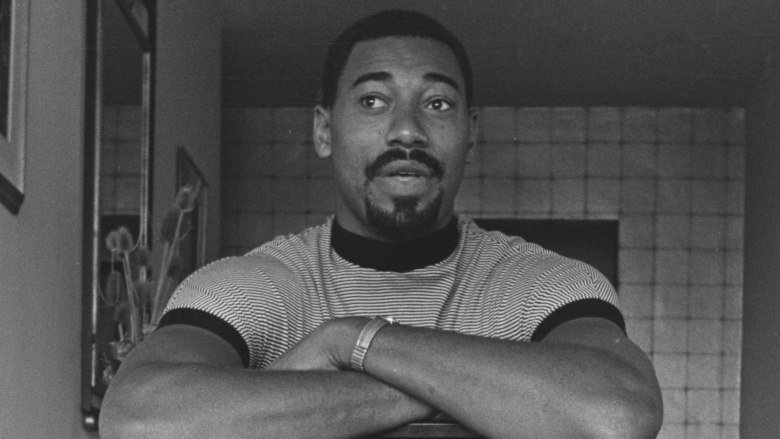
GettyPhiladelphia 76ers legend Wilt Chamberlain poses for a picture in 1965.
Actual Winner: Bill Russell
Wilt Chamberlain was otherworldly this year, becoming the only player to ever average 50+ points in a season while adding nearly 26 boards a game. Despite these numbers, the honors went to Boston Celtics superstar Bill Russell, who averaged 18.9 points and 23.6 rebounds per game.
While Russell was one of the better players in the league, much of this MVP win came down to team success; Russell and the Celtics had established themselves as consistent winners, coming into the 1961-62 season as NBA champions three years running. They finished this year 60-20.
Despite their dominance, it is hard to see how a historic season like the one Wilt had wasn’t rewarded with MVP.
2. Kobe Bryant (2005-06)
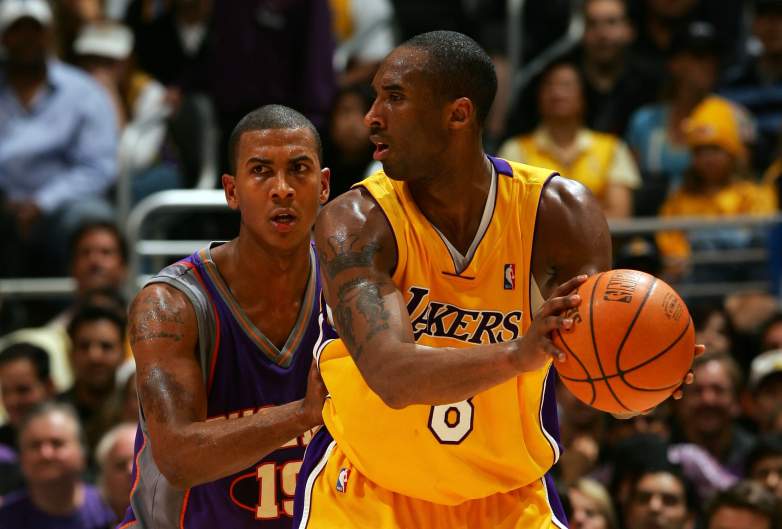
GettyKobe Bryant of the Los Angeles Lakers looks to pass against Raja Bell of the Phoenix Suns.
Actual Winner: Steve Nash
After another contentious win the previous year, Steve Nash would repeat as MVP after the 2005-2006 season. Nash and the Phoenix Suns were in the middle of revolutionizing offense as we know it while going 54-28 in the regular season. While the Nash-led Suns were phenomenal, there was perhaps no one in the league as valuable as Kobe Bryant.
Remember how we discussed Kobe’s 2008 MVP as a potential lifetime achievement MVP? Well, it could have also been to make up for this year, where Kobe’s numbers were incredible. Here, Bryant averaged a career-high 35.4 points per game, in addition to 5.3 rebounds and 4.5 assists. Compare this to Nash’s averages of 18.8 points per game, 10.5 assists per game, and 4.5 rebounds per game, and it’s honestly pretty close.
Nash got the nod thanks to his team’s success, as the Lakers were only able to go 45-37 for the year. When you think of the most valuable player in the league this year though, you think of Kobe Bryant.
1. Michael Jordan (1996-97)
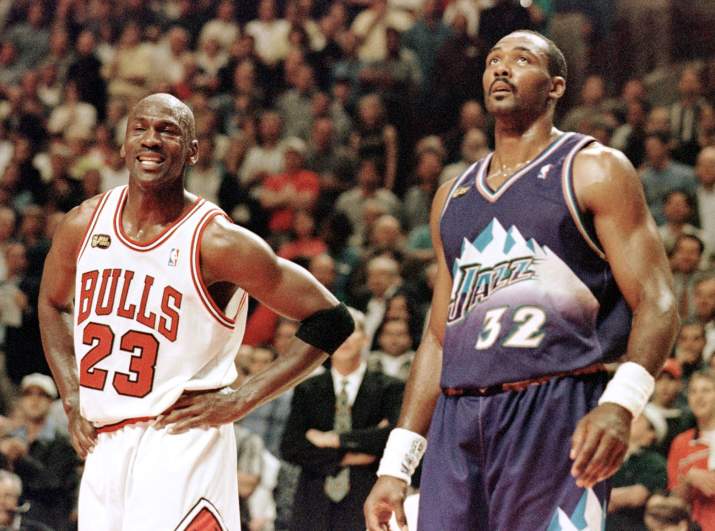
GettyMichael Jordan of the Chicago Bulls smiles while standing next to Karl Malone of the Utah Jazz.
Actual Winner: Karl Malone
The 1996-97 race was a tight one, contested mainly between Karl Malone and Michael Jordan. These two led their teams to the best records in the Western Conference and Eastern Conference respectively, but in the end, the voters decided to give Malone his first MVP instead of awarding Jordan his fifth.
While Malone was great in his own right, this race may be one of the most telling examples of voter fatigue. Jordan’s Chicago Bulls ended up with the best record in the entire league at 69-13, which outpaced Malone’s Utah Jazz by five games. Despite this, Jordan’s individual numbers saw a slight decline from his 1996 MVP campaign, which seemed to be enough for Malone to win his first MVP.
After excellent postseason runs by both squads, these two would meet in the NBA Finals. Here Jordan and the Bulls would have the last laugh, winning the series in six games en route to their fifth title. The following year, the MVP voters learned from their mistake, giving Jordan his coveted fifth MVP.
Comments
The 10 Biggest MVP Snubs in NBA History